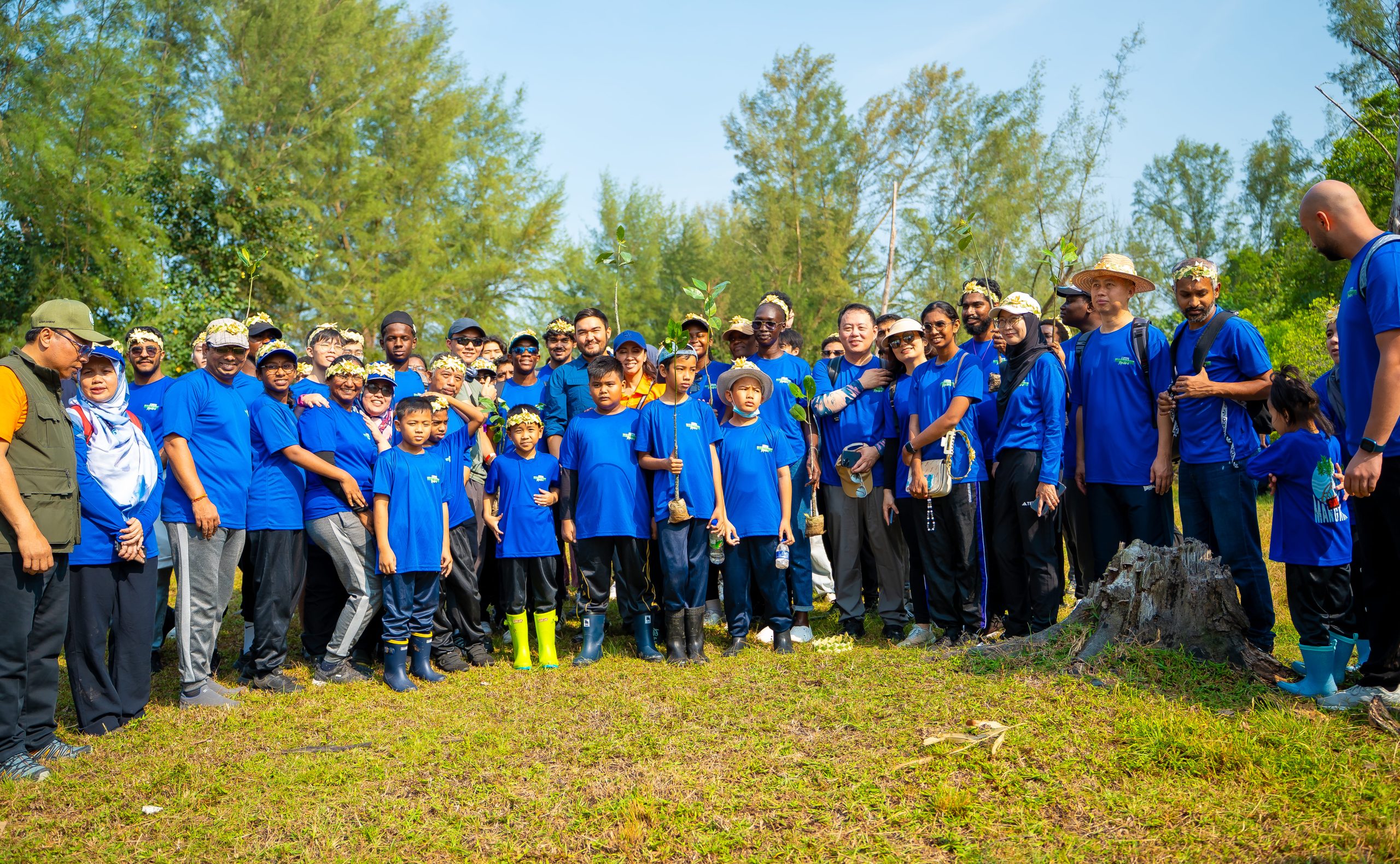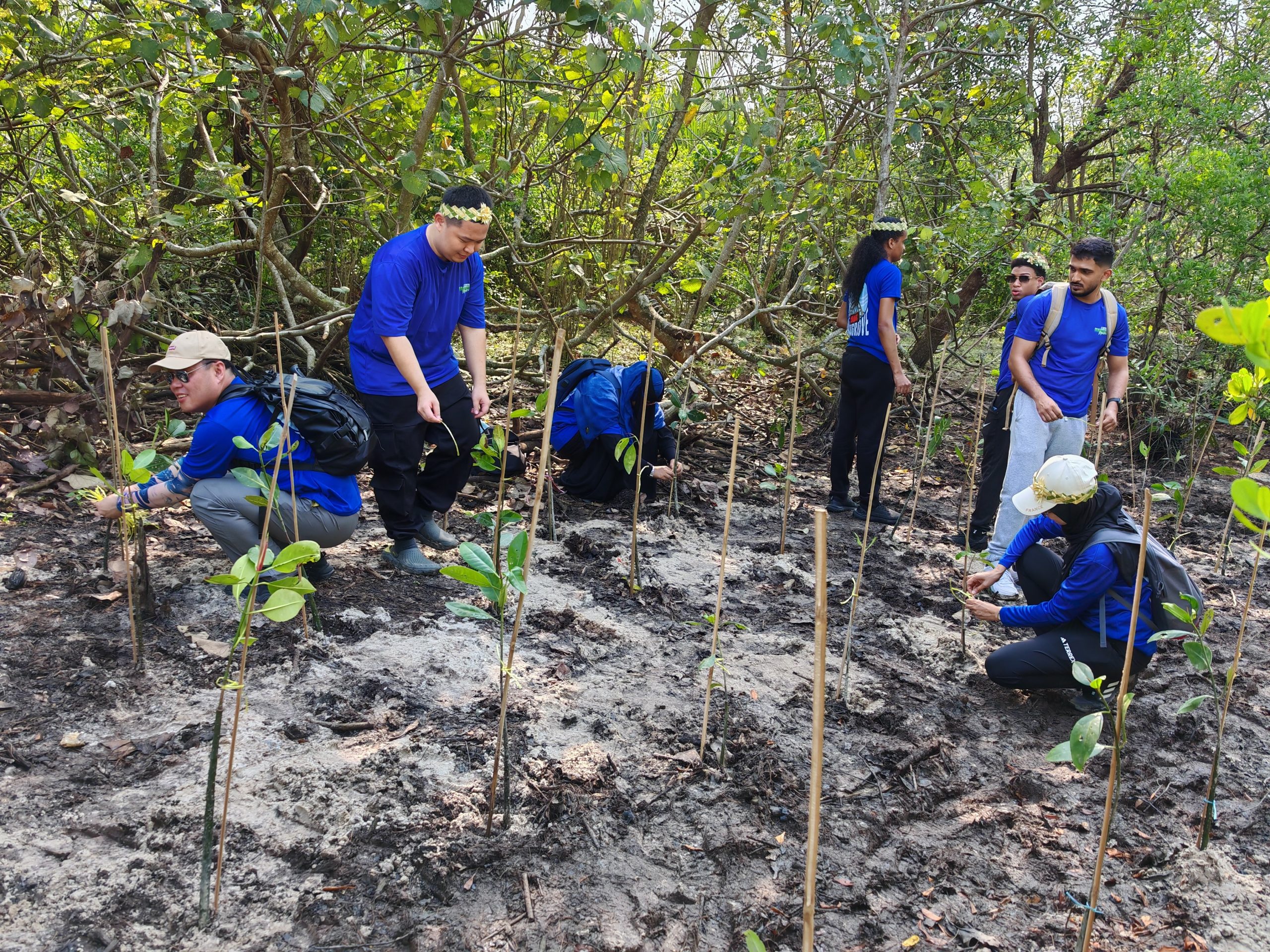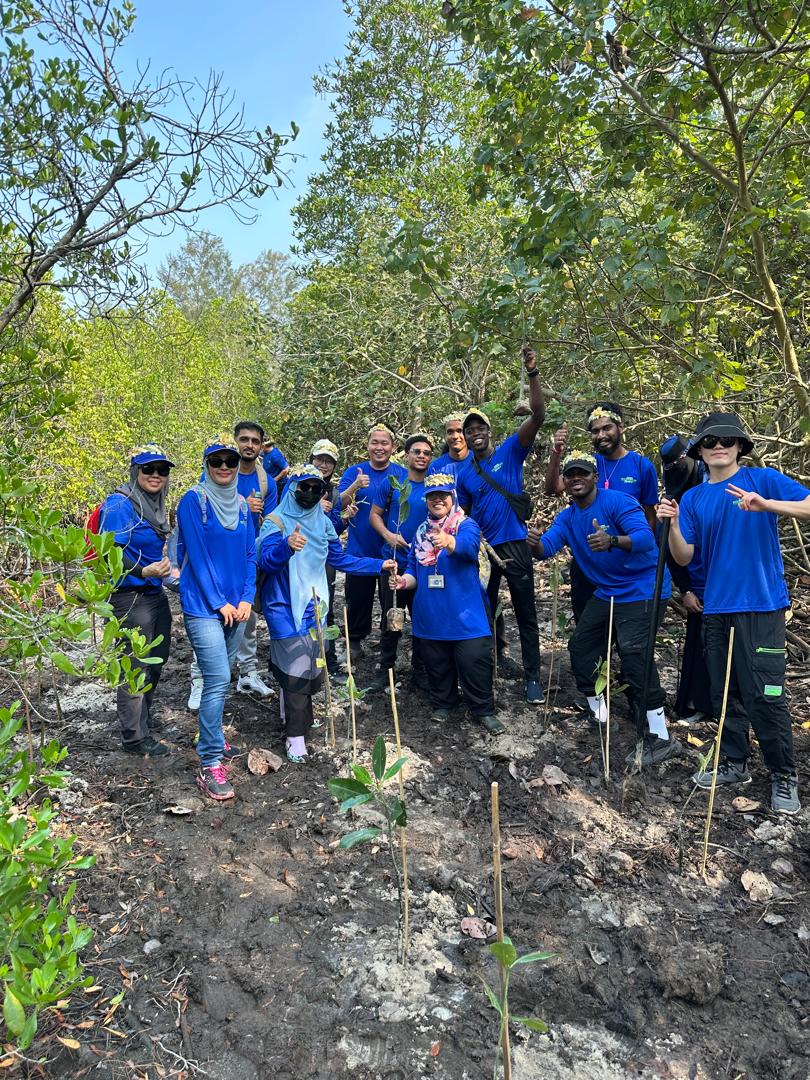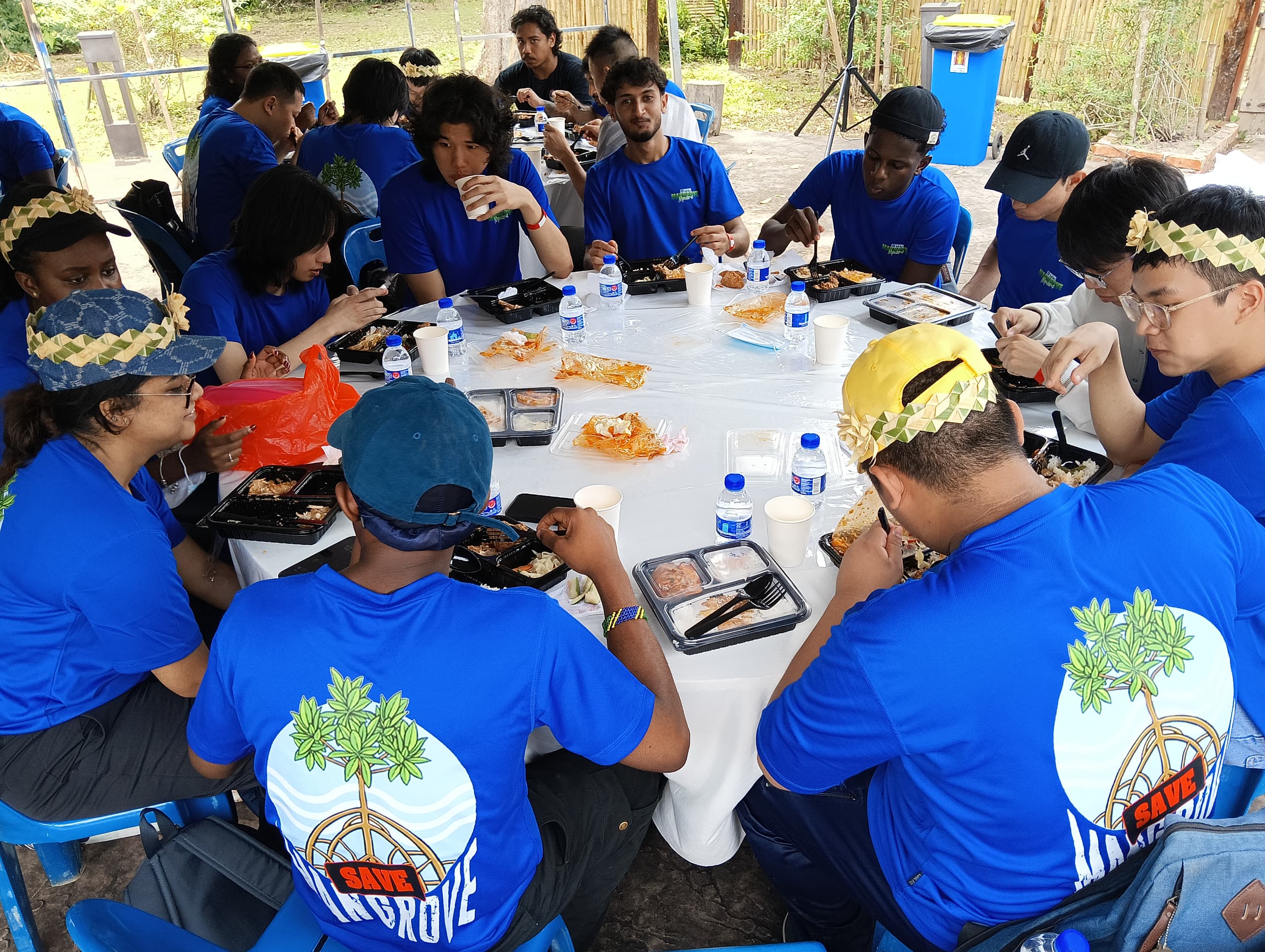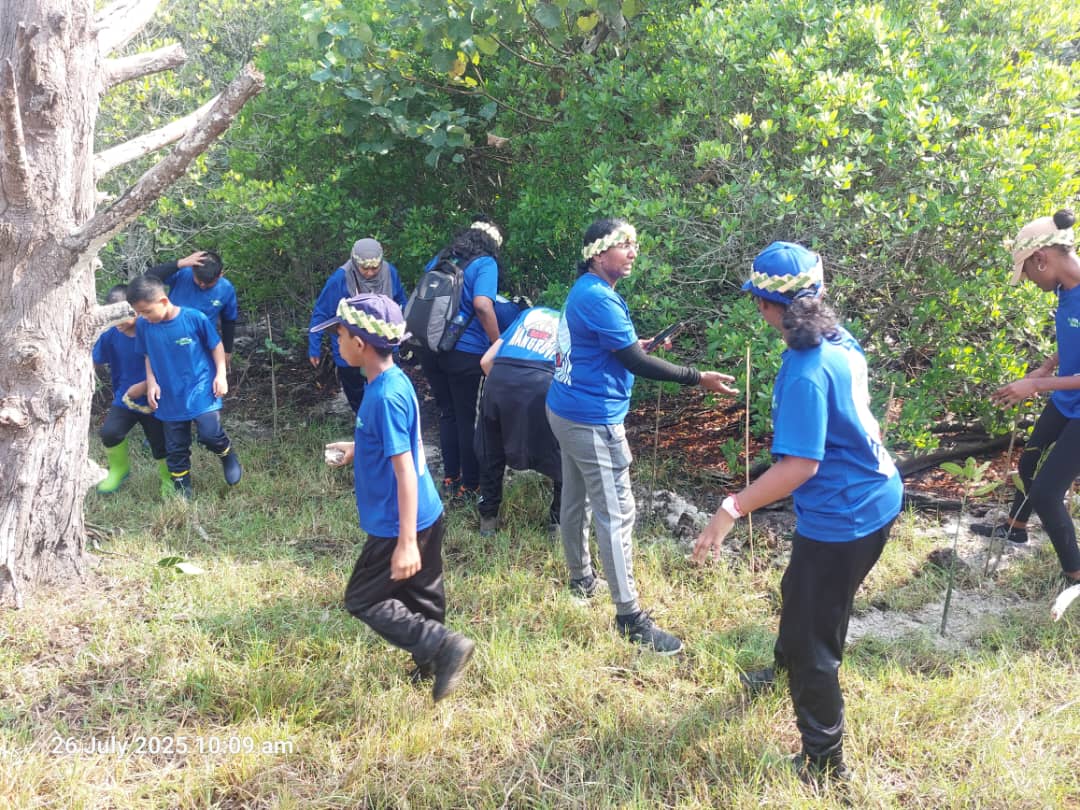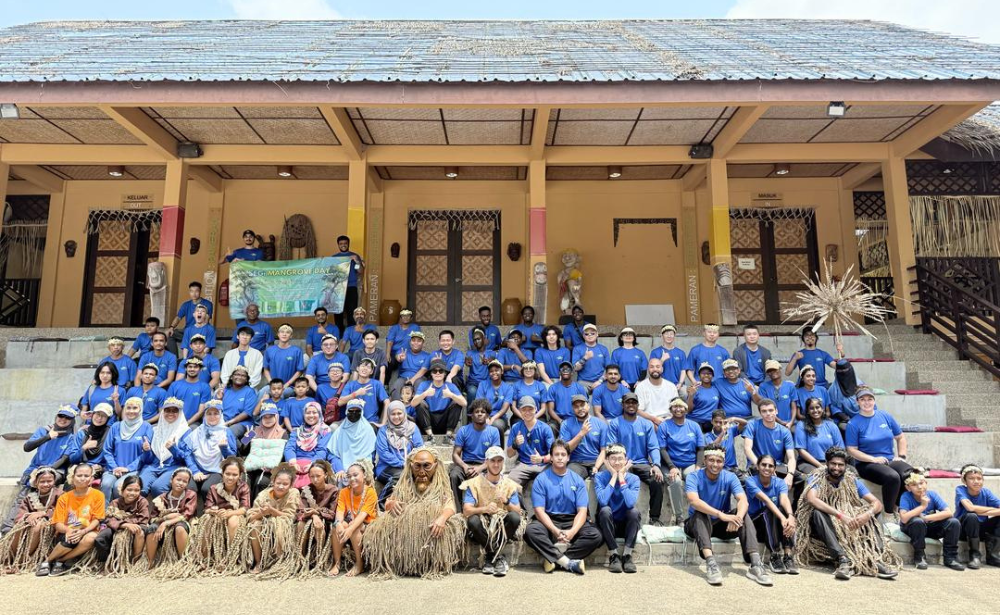SEGi Mangrove Day 2025 marked the highlight of a series of sustainability-focused initiatives that included the Roots for Hope Fair and the Kick for the Root futsal tournament. Organised by the Mangrove Menders under the MPU3432 Co-Curriculum Sustainability Thinking programme (May–Aug 2025) with guidance from Dr Amirah Zahri and Dr Noraidah Shariff, the event was held in collaboration with the Mah Meri Cultural Village (MMCV), a UNESCO-recognised community celebrated for its unique cultural heritage. On 26 July 2025, 88 participants, including students, staff, and external guests, gathered at Pulau Carey in conjunction with World Mangrove Day to take action for climate and community resilience.
Strong student leadership also played a vital role, with Project Director Lee Yew Hern, a Bachelor of Chemical Engineering student, and Deputy Kishen A/L Selvendran, from the Bachelor of Mechanical Engineering programme, coordinating the programme. Their efforts, alongside the Mangrove Menders team, ensured smooth execution of activities while showcasing the impact of youth-driven environmental advocacy.
The centrepiece of the event was hands-on mangrove restoration, where volunteers planted Nyireh Batu (mangrove mahogany) seedlings in degraded, slump-prone intertidal zones. DYTM Raja Muda Selangor, Tengku Amir Shah Ibni Sultan Sharafuddin Idris Shah, graced the planting, lending prestige to the cause. The ecological impact of such efforts is significant: mangroves are capable of storing up to four times more carbon than tropical rainforests, making them a vital solution to climate change. With the world having already lost 3.4 million hectares of mangroves since 1996, initiatives like these play a crucial role in slowing coastal erosion, buffering tidal surges, and protecting biodiversity.
Beyond restoration, the programme included a beach clean-up and seashell spotting, furthering awareness of Malaysia’s fragile coastal ecosystems. These activities reinforced the importance of marine biodiversity conservation, aligning with the UN’s recognition that oceans support the livelihoods of over 3 billion people worldwide. By engaging participants in both physical action and educational exploration, the programme cultivated a deeper understanding of the interconnectedness between human activity and ecosystem health.
Cultural exchange added another powerful dimension. Participants engaged with the Mah Meri community through traditional dance, wedding rituals, woodcarving, and animistic practices, underscoring how healthy ecosystems sustain indigenous traditions and livelihoods. This integration of environmental stewardship with cultural preservation demonstrated that sustainability is not only about conserving nature but also about protecting heritage, livelihoods, and identity.
By combining ecological restoration, biodiversity awareness, and cultural appreciation, SEGi Mangrove Day 2025 exemplified how universities can empower youth to take leadership in sustainability. The event’s success showcased the institution’s commitment to producing graduates who are socially conscious, globally aware, and actively contributing to national and international sustainability agendas.
This event is organised in support of the following United Nations Sustainable Development Goals (SDG):
SDG 13 (Climate Action)
SDG 14 (Life Below Water)
SDG 17 (Partnerships for the Goals)
